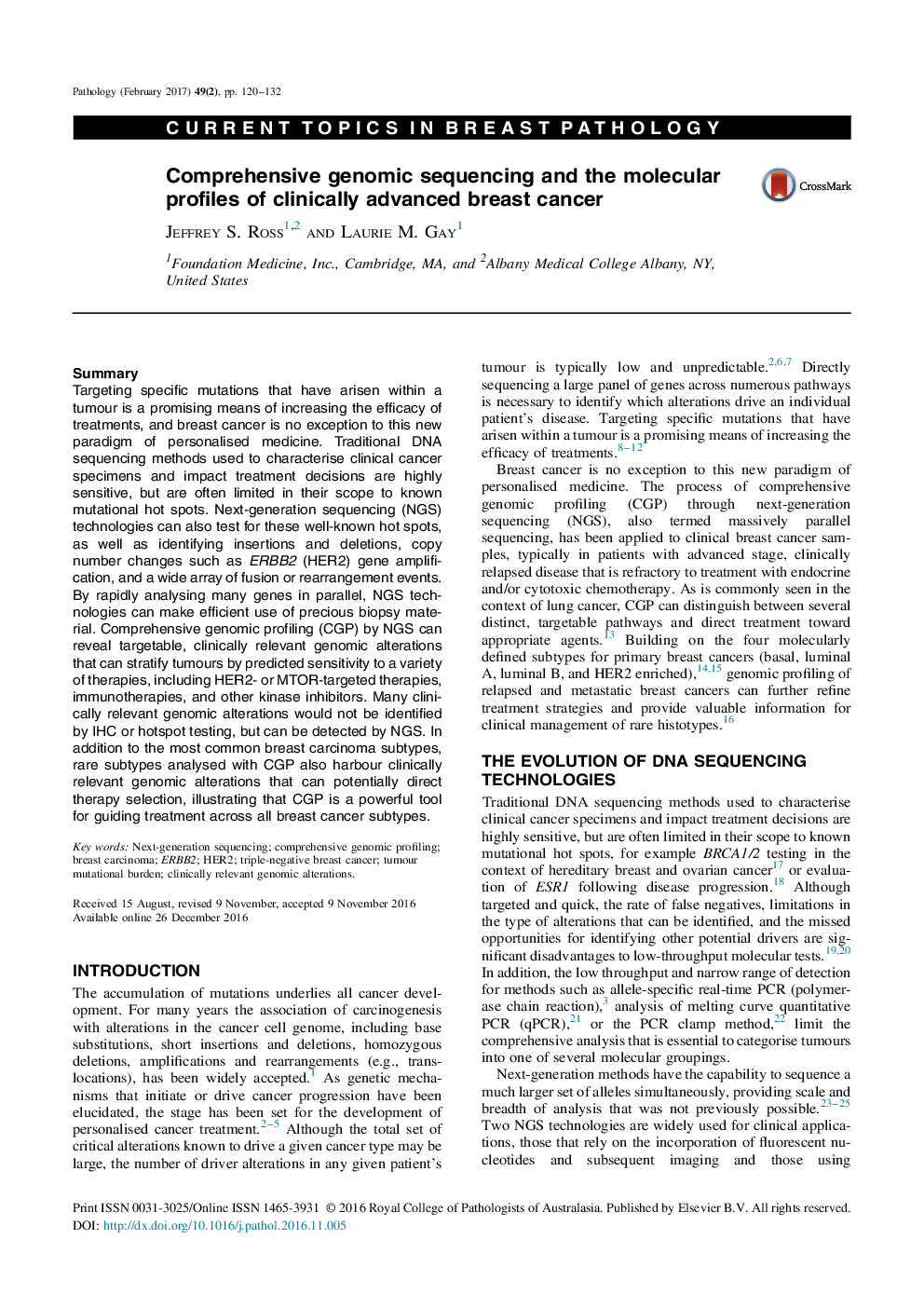| Article ID | Journal | Published Year | Pages | File Type |
|---|---|---|---|---|
| 6463184 | Pathology | 2017 | 13 Pages |
SummaryTargeting specific mutations that have arisen within a tumour is a promising means of increasing the efficacy of treatments, and breast cancer is no exception to this new paradigm of personalised medicine. Traditional DNA sequencing methods used to characterise clinical cancer specimens and impact treatment decisions are highly sensitive, but are often limited in their scope to known mutational hot spots. Next-generation sequencing (NGS) technologies can also test for these well-known hot spots, as well as identifying insertions and deletions, copy number changes such as ERBB2 (HER2) gene amplification, and a wide array of fusion or rearrangement events. By rapidly analysing many genes in parallel, NGS technologies can make efficient use of precious biopsy material. Comprehensive genomic profiling (CGP) by NGS can reveal targetable, clinically relevant genomic alterations that can stratify tumours by predicted sensitivity to a variety of therapies, including HER2- or MTOR-targeted therapies, immunotherapies, and other kinase inhibitors. Many clinically relevant genomic alterations would not be identified by IHC or hotspot testing, but can be detected by NGS. In addition to the most common breast carcinoma subtypes, rare subtypes analysed with CGP also harbour clinically relevant genomic alterations that can potentially direct therapy selection, illustrating that CGP is a powerful tool for guiding treatment across all breast cancer subtypes.
